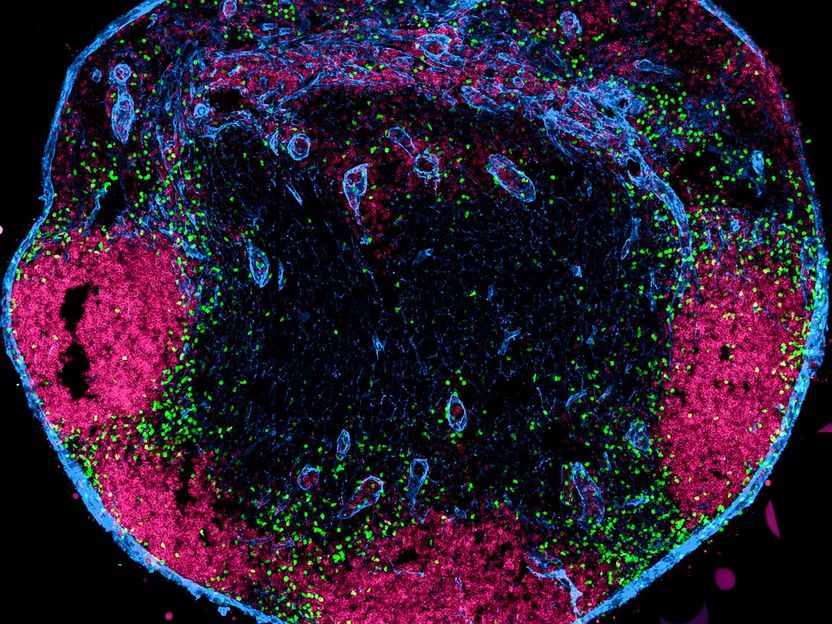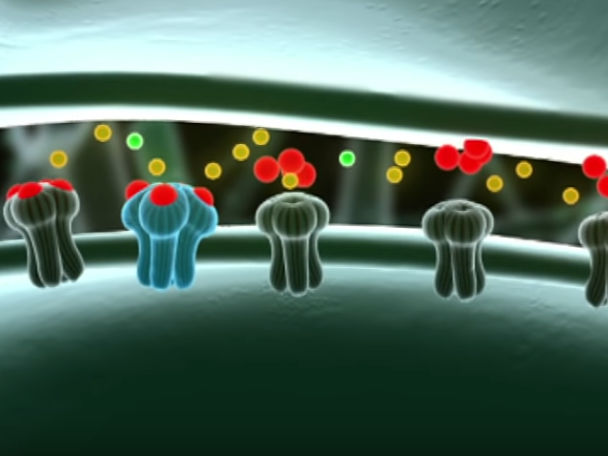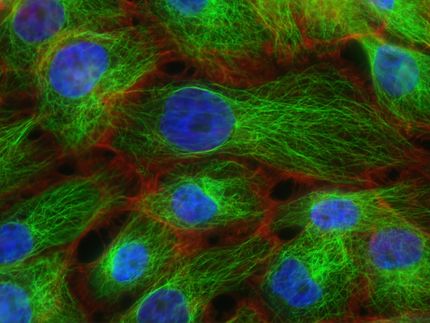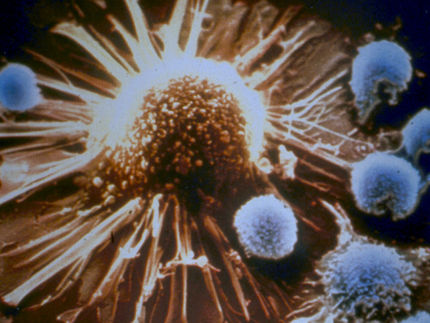New Players in the Immune Response
This discovery has consequences – for vaccination strategies as well as for immunotherapies against cancer
lymph nodes trigger very different immune responses – depending on which body tissue they are connected to. Special T cells are responsible for this newly discovered relation.

Cross-section through a lymph node. Unconventional T cells (green), which have migrated from the tissue, are located in the marginal sinus and in the interfollicular zone. Follicular B cells in magenta, the lymph node capsule and lymphatic vessels in blue
Konrad Knöpper, Universität Würzburg
The human body contains 600 to 800 lymph nodes, which are specialised organs that trigger immune responses. To be informed about infections in the body, lymph nodes are connected to the individual organs via lymph vessels. From the organs, the lymph vessels transport fluids and special immune cells to the lymph nodes. These immune cells are called dendritic cells; they carry information from the organs into the lymph nodes and pass it on to other immune cells there.
Now it is clear: the dendritic cells are not solely responsible for this important flow of information. A research team led by immunologist Professor Wolfgang Kastenmüller from Julius-Maximilians-Universität (JMU) Würzburg in Bavaria, Germany, has discovered that so-called unconventional T cells also continuously migrate from the tissue into the lymph nodes and influence the immune responses there.
This discovery has consequences – for vaccination strategies as well as for immunotherapies against cancer.
Different subtypes of unconventional T cells
"Each tissue in our body has different subtypes of unconventional T cells," explains Wolfgang Kastenmüller. "Since these cells each migrate to the nearest lymph node, the individual lymph nodes also differ in the composition of the T cells. And that has a direct effect on the immune responses of the individual lymph nodes."
For example, a lymph node that has been informed about an infection in the lungs triggers a different immune response than a lymph node that receives its information from the intestine or from the skin.
Taking advantage of the differences between lymph nodes
A vaccination administered into the skin or muscle, for example, always addresses lymph nodes that are connected to the skin. However, the vaccine may be much more effective if it is administered near other lymph nodes. This consideration also applies to immunotherapies against cancer.
"That is why we want to investigate next whether we can use the difference in lymph nodes to make vaccinations more efficient or to improve immunotherapies against cancer," says the JMU professor. Another interesting question is whether the differences in the lymph nodes can be actively influenced. And it is to be clarified what significance the new findings have with regard to the development of autoimmune diseases and cancer.
Original publication
Other news from the department science

Get the life science industry in your inbox
By submitting this form you agree that LUMITOS AG will send you the newsletter(s) selected above by email. Your data will not be passed on to third parties. Your data will be stored and processed in accordance with our data protection regulations. LUMITOS may contact you by email for the purpose of advertising or market and opinion surveys. You can revoke your consent at any time without giving reasons to LUMITOS AG, Ernst-Augustin-Str. 2, 12489 Berlin, Germany or by e-mail at revoke@lumitos.com with effect for the future. In addition, each email contains a link to unsubscribe from the corresponding newsletter.
Most read news
More news from our other portals
Last viewed contents
Category:Foodborne_illnesses
List_of_subjects_in_Gray's_Anatomy:_XI._Splanchnology
Nexia Biotechnologies to reorganize into oil and gas company
New Business Development Appointments Strengthen ClinPhone's Operations
Hepcidin
Category:Medical_Council_of_India
Prionics Acquires CEDI Diagnostics - Strategic Partnership With Life Science Innovation Centre
MagForce Selected as Winner of 2010 STEP Award in the Category Product/Technology - Prize awarded in recognition of company's innovation and growth potential
MagForce AG Announces Changes to Supervisory and Management Boards
Adipose-Derived Stem & Regenerative Cells Improve Fat Graft Retention in Preclinical Study

No chance for environment-relieving plastic decomposition by bacteria - Burst Hope





















































